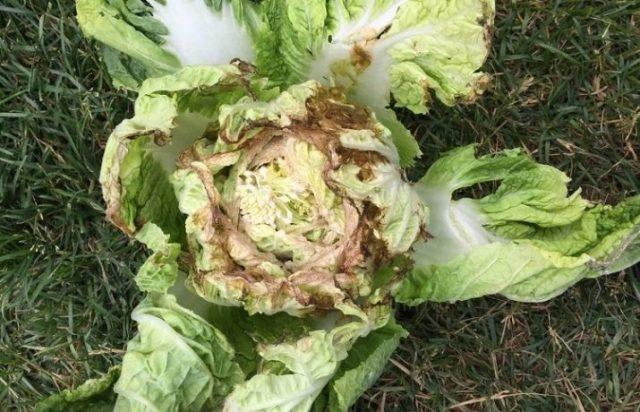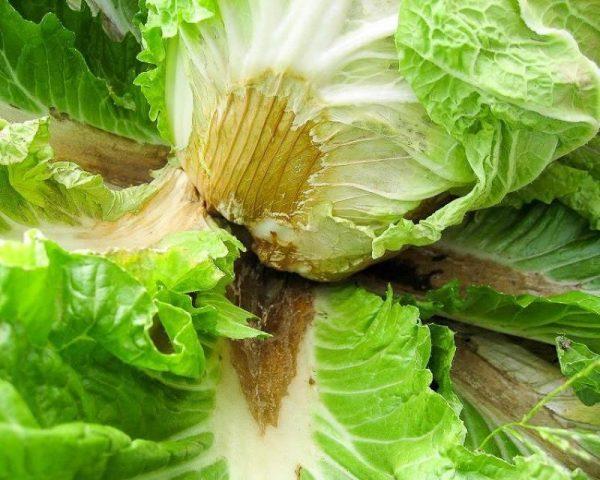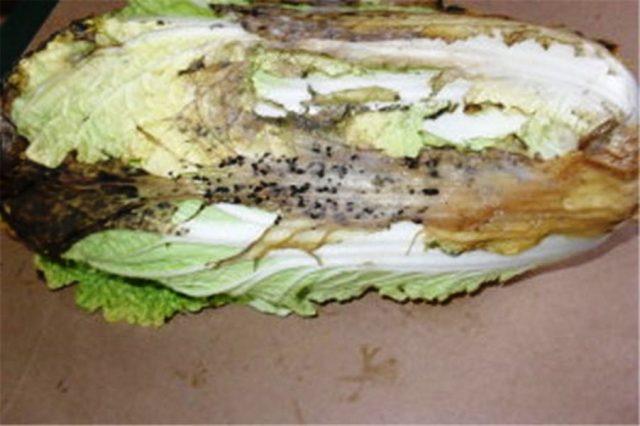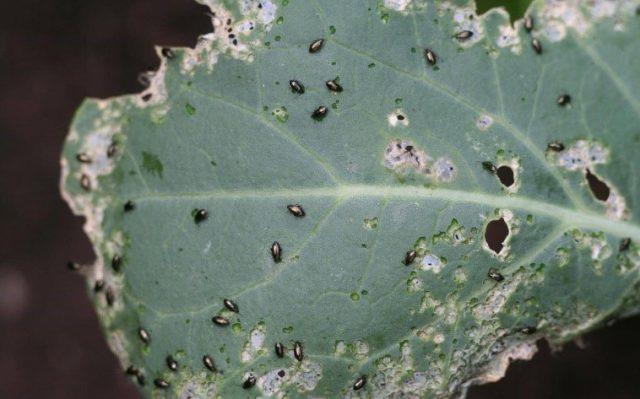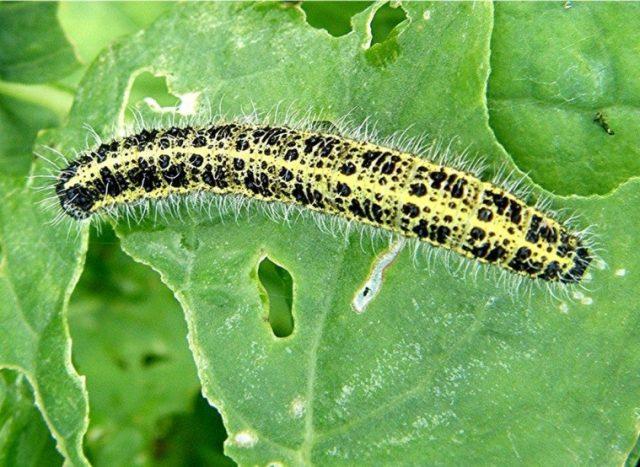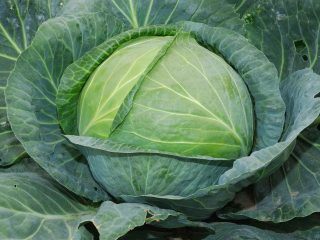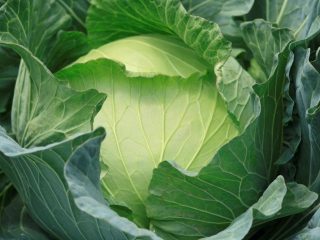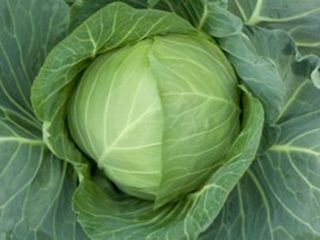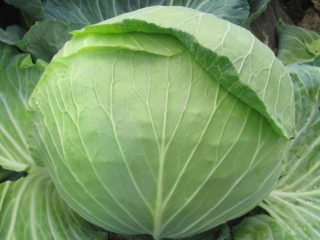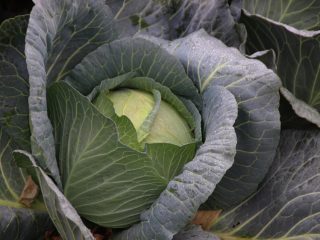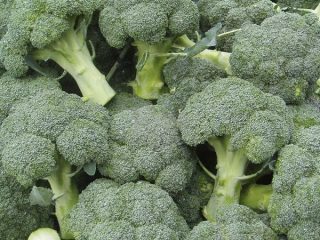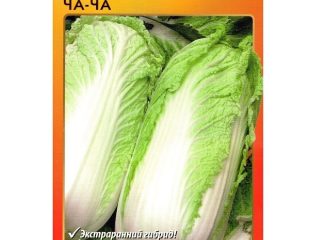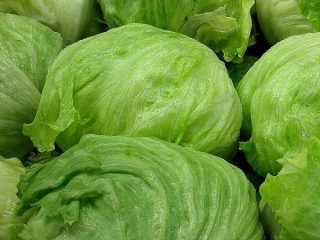Content
Chinese cabbage is becoming a popular vegetable crop in Russia. This healthy plant product is used in the preparation of salads and added to meat dishes. Amateur gardeners and vegetable farmers often notice black spots on Chinese cabbage. Agricultural specialists know why dark spots appear and how to protect the plant from damage.
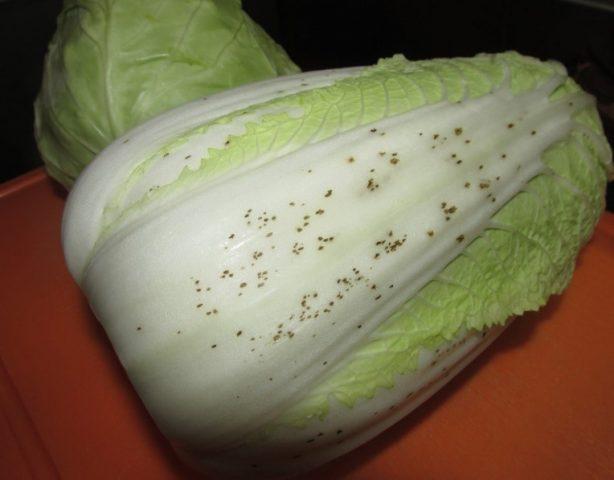
Black spots on Chinese cabbage occur as a result of infectious or physiological disorders
Why do black spots appear on the leaves of Chinese cabbage?
Black spots on the leaves of Chinese cabbage indicate that the vegetable crop has been adversely affected. At the same time, the leaves of a soft light green color become covered with spots. Most often, dark inclusions are formed due to diseases.
Point necrosis
A non-infectious disease - point necrosis develops as a result of changes in metabolism in plant tissues. Ill health can be identified by a number of signs:
- rounded depressed points;
- black color of spots;
- the size of the formations is within 4 mm.
Point necrosis can be caused by improper fertilization, in particular, fertilizing with nitrogen-phosphorus complexes. Damage occurs at any stage of the Chinese cabbage growing season and even after harvesting.
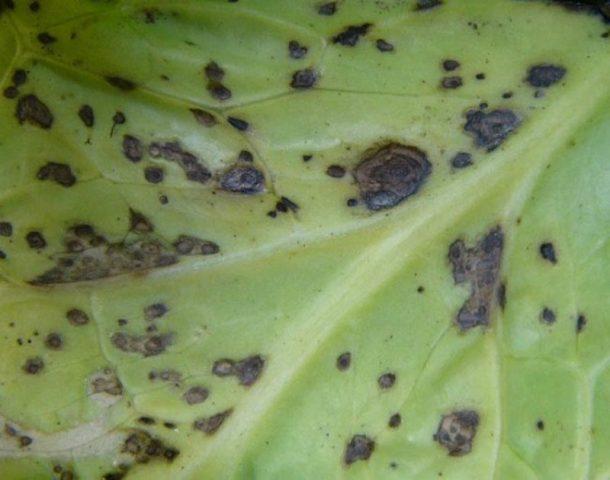
Most often, inclusions of punctate necrosis appear on the outer leaves; the core is rarely affected
Alternaria blight
The fungal disease Alternaria occurs due to excess water. The reasons may be a violation of the irrigation regime and a humid climate. On mature plants, a coating similar to soot forms. If the conidial fungal cells are not eliminated, the infection will persist in the remains of the leaves.
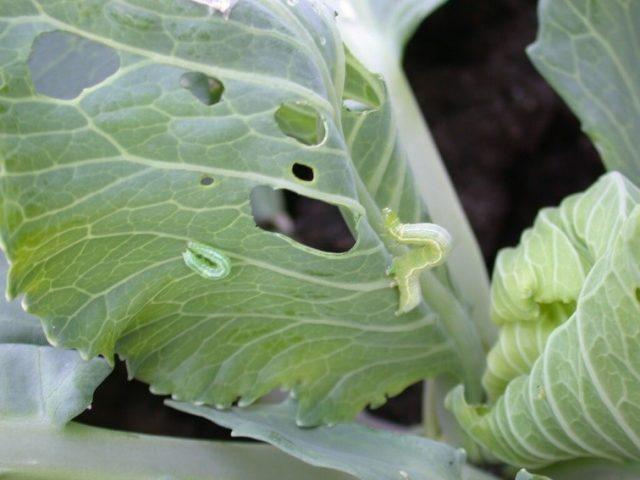
Fungal spores are transferred by insects from diseased plantings to beds with healthy vegetables
Other reasons
The reasons for the appearance of black specks on Chinese cabbage can be other infections, as well as the invasion of insect pests. Violations in the state of plantings cause diseases:
- vascular bacteriosis;
Black dots concentrated in the area of petioles and veins on the leaves are a sign of vascular bacteriosis
- white rot;
With white rot, the root collar and lower leaves suffer, the head of cabbage becomes discolored and becomes covered with mycelium.
- gray rot damages Chinese cabbage in storage;
Lower leaves covered with mold with black dots are a manifestation of gray rot infection
A common cause of negative changes in the tissue structure of Chinese cabbage is the impact of insects. Vegetable leaves often suffer from the following pests:
- cabbage flea beetle;
Translucent gray dots form on the leaves, which means the plant is affected by the cabbage flea beetle.
- cabbage whites;
Dark specks on the leaves are the result of the life activity of cabbage white caterpillars
To reduce the risk of spreading the arthropod population, vegetable crops can be treated with folk remedies. Solutions effective against insects:
- dry mustard;
- red pepper;
- wood ash;
- laundry or tar soap
When preparing formulations, you must follow the recipe. An excess of active ingredients can destroy plants.
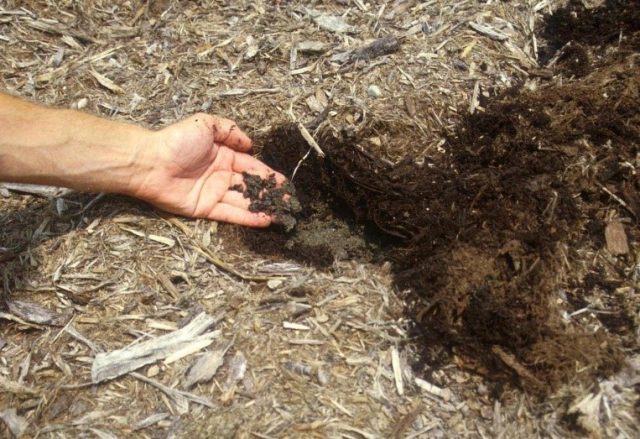
Insect pests survive the winter in the uncollected remains of weeds and last year's mulch
Why does cabbage have black spots inside?
Black spots inside a head of Chinese cabbage occur due to the spread of rot in the tissues of the plant. A common cause is mucous bacteriosis, an infectious disease that appears towards the end of the growing season. Affected heads of Chinese cabbage rot and emit an unpleasant odor. Some of the leaves become dry and wrinkled, after which they fall off, and the rot spreads to the middle of the fork.
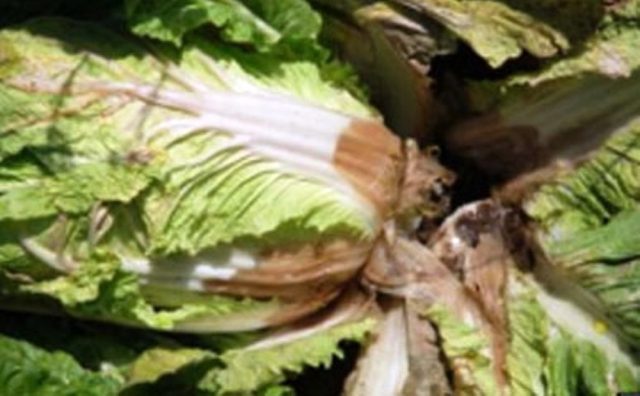
The cause of mucous bacteriosis is an excess of nitrogen coupled with a lack of potassium and calcium.
Fusarium wilt in Chinese cabbage develops in persistently hot weather. Dark brown dots are visible on the cut of the head of cabbage.
What to do if blackheads appear
The appearance of signs of damage to Chinese cabbage requires the use of fungicides. The following drugs are effective against rot, alternaria, and bacteriosis:
- Oksikhom;
- Quadris;
- Profit Gold;
- Ordan;
- Abiga
- PEAK;
- Speed
Excellent results are obtained by using products based on sulfur or copper. Experienced gardeners recommend Kuprosil and copper sulfate solution.
Insecticides are used to treat beds against insects. The following products have proven themselves to be the best in pest control:
- Bankol;
- Aktara;
- Intavir;
- Iskra-M;
- Kemifos.
Traditional recipes for remedies to combat diseases do not guarantee 100% results. But such solutions do not have a negative impact on the ecosystem.
Popular folk remedies are:
- ammonia (2 tablespoons of ammonia solution and 1 tablespoon of soap per 10 liters of water);
- vinegar (1 tbsp. essence per bucket);
- salt (250 g per 10 l).
After using chemicals for processing, Chinese cabbage should not be eaten for at least 14 days. The use of folk remedies does not impose restrictions on the consumption of vegetables.
Is it possible to eat Chinese cabbage with black spots?
Although Chinese cabbage with black dots does not pose any particular danger to the human body, it is not advisable to eat it. If it is a shame to throw away the grown product, it is recommended to thoroughly rinse the head of cabbage, remove spoiled leaves or cut out the affected areas with a knife. The taste of the vegetable does not change.
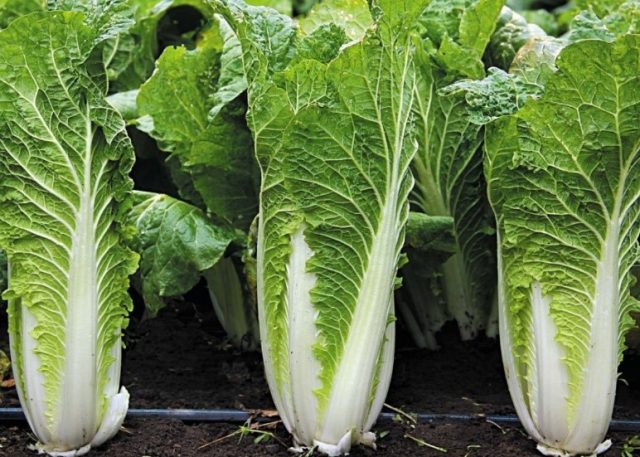
Caring for Chinese cabbage is a rather labor-intensive process, but the trouble is compensated by a good harvest.
Prevention measures
The appearance of black spots on the leaves and in the core of Chinese cabbage is most often associated with errors in agricultural technology. Therefore, it is so important to follow the recommendations for caring for vegetables.
Basic agrotechnical rules:
- deep preventive plowing of the soil in autumn;
- observance of the landing order;
- heating the seeds for 20 minutes or treating them with Thiram (5 g of the drug per 1 kg);
- reducing soil acidity in a plot intended for growing cabbage using slaked lime;
- proper feeding in the head setting phase with the addition of ash and compositions containing microelements (phosphorus, boron, molybdenum);
- timely weeding and removal of weeds from the beds;
- regular preventive spraying;
- storing the crop in a ventilated area at a temperature of +3-70 WITH.
A good solution is to choose disease-resistant types of Chinese cabbage for planting on your site. The following varieties are immune to infections:
- Wineglass;
- Manoko F1;
- Tenderness F.
Compliance with the rules of agricultural technology, identifying the problem and ways to solve it at the initial stages will help you get healthy, juicy vegetables. Experts are convinced that the treatment of Chinese cabbage plantings for preventive purposes should be carried out before the mass growth of cabbage heads begins. Information about the causes of the formation of blackheads and ways to combat diseases is presented in the video:
Conclusion
Black spots on Chinese cabbage can occur as a result of poor agricultural practices and adverse weather conditions. Timely correction of growing conditions and preventive treatment of beds make it possible to obtain a good harvest of healthy, tasty vegetables, rich in vitamins and microelements.
